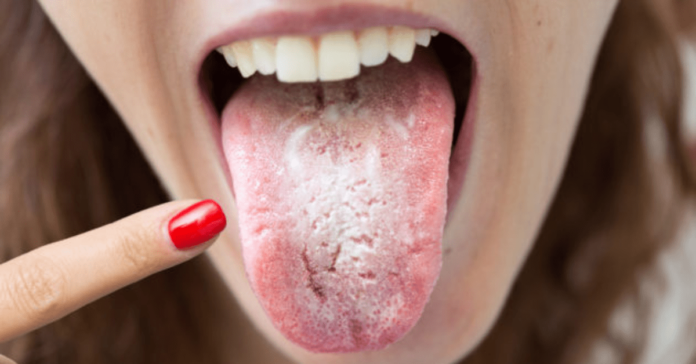Overview
Oral thrush is a condition of the mouth caused by a yeast or fungal infection. It is also known as oral candidiasis or oropharyngeal candidiasis. Oral thrush occurs when the fungus called Candida albicans accumulates inside your mouth. Candida is normally found inside the human mouth, but it needs treatment when it grows excessively to cause troubling symptoms.
About oral thrush
Oral thrush requires treatment when it reaches the roof of your mouth, your tonsils, gums, or throat. Oral thrush can be identified by creamy white lesions on the lining of your mouth, especially your tongue and cheeks. Oral thrush is more common in babies and older people because they have a weak immune system. People who are immunosuppressed because of HIV, leukemia, or consumption of certain medicines might also suffer from oral thrush.
Sometimes cancer treatments such as chemotherapy and radiation might damage your healthy cells. In such a condition, you might become more susceptible to fungal infections such as oral thrush. Uncontrolled diabetes can also lead to it.
Oral thrush can be transmitted from one person to another through a kiss. It is also possible for you to pass it from your body to other parts of someone else’s body.
Symptoms of oral thrush
Oral thrush in its early stages does not show any symptoms. But if the infection grows and starts spreading, it can show the following symptoms:
- Creamy white or yellow patches on the lining of your mouth, inner cheeks, gums, lips, and even tonsils
- Your patches or bumps might bleed on slight scraping while brushing or cleaning your mouth
- Burning sensation in your mouth
- Loss of taste
- A feeling that food is stuck in the throat
- A cottony feeling inside your mouth
- Redness and pain under dentures, called denture stomatitis
- Median rhomboid glossitis, a large red painless mark in the tongue’s center
- Pain while swallowing food
- Cracked and red corners of the mouth
- In severe cases, the infection may spread downward into your esophagus (Candida esophagitis). If it spreads to esophagus, you may experience difficulty swallowing and pain or feel as if food is getting stuck in your throat.
- Infants with candida infection may experience trouble feeding or be irritable and fussy. They can pass infection to their mothers during breast-feeding.
When to see a doctor?
If you or anybody in your family develops white raised patches inside your mouth, you should visit your doctor. Oral thrush is more common in unhealthy and immunosuppressed children and adults. Therefore, if you suffer from oral thrush, you should consult your dentist immediately to evaluate any underlying health issues.
Call 1860-500-1066 to book an appointment
Prevention of oral thrush
You can follow the following measures to prevent the occurrence of oral thrush:
- If you use a corticosteroid inhaler, rinse your mouth or brush your teeth right after usage .
- Brush your teeth twice daily and floss regularly or as recommended by your dentist.
- Remove your dentures every night and make sure that they fit properly in your mouth. Don’t forget to clean your dentures regularly.
- Visit your dentist regularly, especially if you have diabetes. People with uncontrolled diabetes are more susceptible to oral thrush.
- Sugary foods increase the growth of the fungus Candida, so try to limit your sugar intake.
- Control your blood sugar levels to reduce the amount of sugar in your saliva. This will reduce the build-up of candida in your mouth.
- Talk to your dentist if you are suffering from a dry mouth.
Remedies of oral thrush
You may try the following remedies to get help with your condition:
- You can try salt water rinses at home. Dissolve ½ teaspoon of salt in one cup of water and rinse your mouth with it.
- Talk to your dentist about ways to properly disinfect your dentures to avoid oral thrush.
- Practice good dental hygiene . If you are suffering from oral thrush, you should replace your toothbrush more often. Also, make sure not to share your toothbrush with anyone.
What are the treatment options for oral thrush?
The treatment of oral thrush depends upon your health, age, and the cause of the fungal infection.
- Adults and children are prescribed anti-fungal medicine. You might be given tablets or liquid to rinse your mouth.
- Infants are prescribed a mild anti-fungal medicine and the nursing mothers are prescribed an anti-fungal cream to be applied on the breasts.
Conclusion
Oral thrush is not a serious condition. It is mostly treatable with anti-fungal medicines and oral rinses. But you should seek immediate medical attention if your oral thrush begins to spread fast and bleeds. Timely treatment can ease symptoms within a few weeks.
Frequently Asked Questions (FAQs)
Is oral thrush difficult to treat?
Oral thrush can be cleared within a few weeks with anti-fungal medication.
What can be mistaken for oral thrush?
Hairy leukoplakia can be mistaken for oral thrush.
Can oral thrush spread to your throat?
Yes, oral thrush can spread to the throat if left untreated.


















